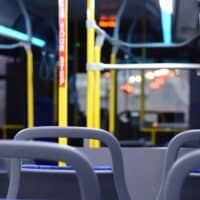Liability in Bus Accidents

Millions of Florida residents depend on public transit for their daily needs. With the increasing emphasis on green energy, carbon emission reduction, and the expansion of public transportation services in Florida, many are also shifting towards public transit for their mode of transport. Whether commuting to work or navigating the rest of their day, riders place immense trust in the drivers and operators to ensure safety. However, accidents on public transportation can occur without warning, leaving individuals confused and in need of guidance on their best course of action. Unfortunately, bus accidents in Florida are common, despite safety inspections and driver training.
Understanding the Nature of Bus Accidents in Florida
The leading causes of these accidents are diverse and often interconnected:
- Distracted Drivers: Whether due to mobile devices, passengers, or other distractions, a moment’s inattention can lead to a serious accident.
- Speeding: Excess speeds to meet route time expectations frequently contribute to collisions.
- Driver Error: Mistakes in judgment, failure to yield, or misreading traffic signals can have catastrophic consequences.
- Defective Bus Equipment: Malfunctioning brakes, steering, lights, or other essential components can lead to accidents.
- Poor Road Conditions: Potholes, inadequate signage, or poorly designed intersections can create hazardous situations for bus drivers and passengers alike.
The failure to provide passenger seatbelts and failure to secure passengers’ possessions often make accidents involving buses more harrowing. Any of these factors can turn a typical morning commute into a dangerous experience.
What to Do After a Bus Accident: A Practical Guide
Bus accidents can be particularly disorienting for passengers, as they often occur without warning or a chance to brace for impact. The immediate aftermath of a bus collision can be chaotic, and knowing the right steps to take is crucial for both safety and future legal protection.
First and foremost, it’s essential to listen closely to any instructions, orders, or announcements from the operator. Bus drivers are specially trained to protect public safety, even after an accident, and their guidance should be followed carefully. Don’t rush out of the vehicle, as you don’t know the conditions outside. The bus may be in a dangerous location – in the middle of the street or teetering over the edge of a ditch.
Even minor crashes can lead to serious health conditions if not attended to, so it’s wise to take note of any pain following the accident and take proactive steps to call and get checked out by emergency services.
Even weeks later, should pain arise in common areas like your neck or back, you should contact a doctor and inform your attorney. High-speed bus impacts frequently cause whiplash, and its effects may be dormant.
Buses have a high duty to public safety and can be insured against bodily injury or death. However, there may be limits in place for how much you can receive, and suing a government body usually has a distinct process that involves a long notice period. Calling a personal injury attorney as soon as possible after an accident is advisable to begin the process on the right footing.
Engaging a personal injury attorney after a bus accident in Florida offers several key advantages:
- Expert Guidance: Navigating complex legal procedures with confidence.
- Maximized Compensation: Ensuring all potential damages are considered and pursued.
- Negotiation Skills: Effectively dealing with insurance companies and other parties.
- Understanding of Laws: Applying specialized knowledge of Florida’s public transit laws.
- Stress Reduction: Handling all legal aspects, allowing victims to focus on recovery.
Call Hale Law today if you were injured on public transit in Florida. Remember, you don’t pay unless we win.
